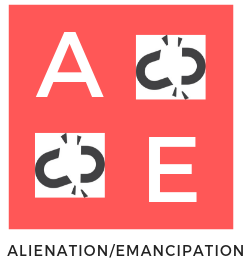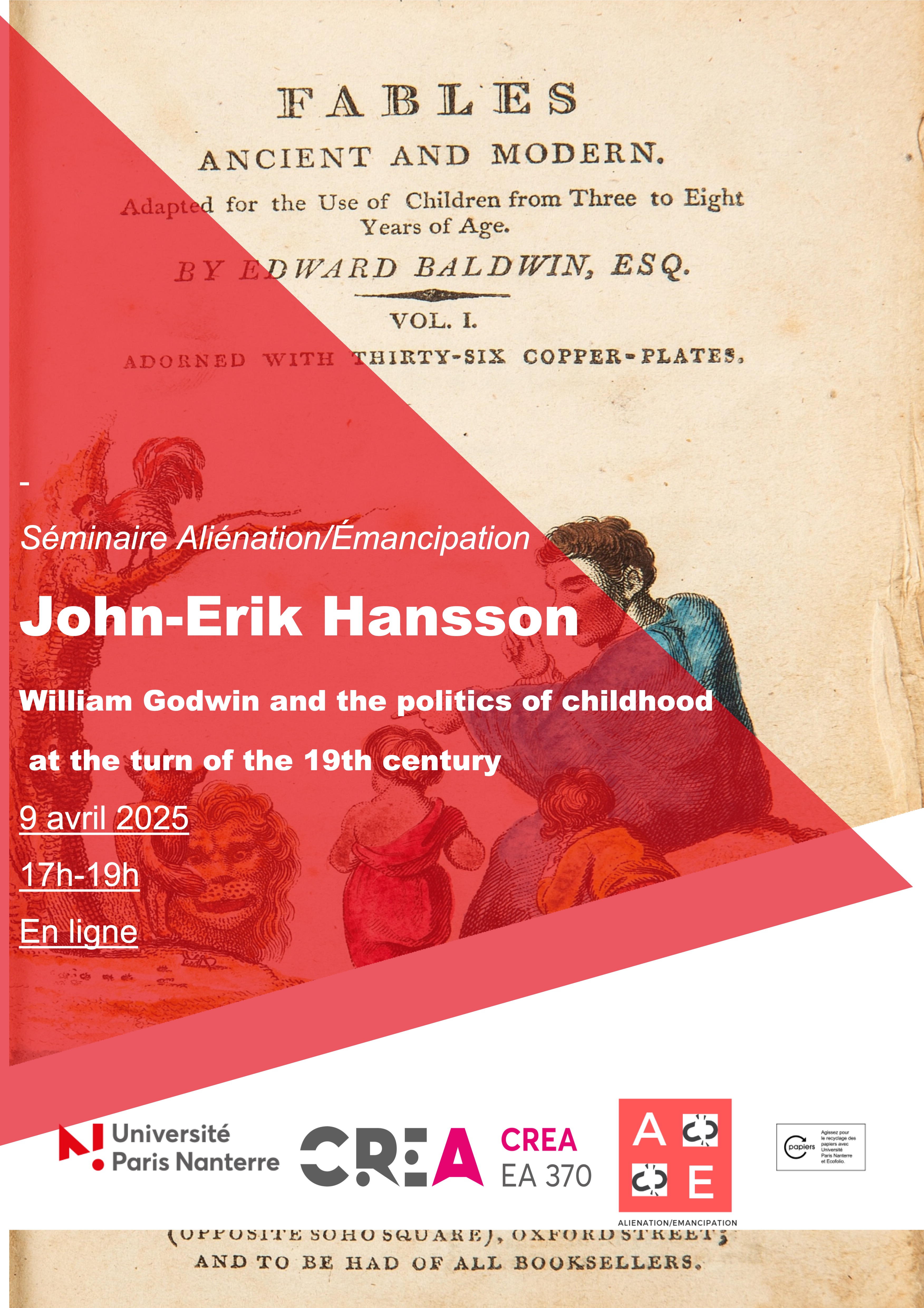Version française / Séminaires
- Recherche - LLS,
Séminaire Aliénation/Émancipation : John-Erik Hansson

'All education is despotism': William Godwin and the politics of childhood at the turn of the 19th century.
le 9 avril 2025
Presentation
The radical writer William Godwin (1756-1836) is perhaps best known for his 1793 Enquiry Concerning Political Justice, in which he advocated the dissolution of all government and the abolition of private property. While his conclusions were radical, he has been criticised for failing to support the social movements that sought to effect social and political change in Britain in the 1790s, preferring the quiet diffusion of knowledge to the tumult of the public gathering. From the late 1790s, as the radical movement faced increasing governmental repression, Godwin looked to children and their education as a source for future political progress. He complemented the parts of the Enquiry Concerning Political Justice that dealt with the subject of education with a series of conversational essays in The Enquirer (1797), and children’s books that he wrote in the first decades of the 19th century.
In this presentation, I will show how Godwin, at the turn of the 19th century, wrestled with the tensions between education and domination while still conceiving of education as the key to future social and political emancipation. In doing so, I will begin by examining Godwin’s intervention into some of the key educational debates of the period. On the one hand, Godwin rejected national systems of state education, such as that which was proposed by the French Revolutionaries. He argued in Political Justice that such a system would reinforce rather than alleviate political domination, and lead to permanent subjection instead of emancipation. On the other hand, he went against many of the radicals of his time by preferring school education to individual tutoring. He did so on the grounds that, while “all education is despotism”, school education mitigated the arbitrary power of the parent over the child. More broadly, the question of the domination of children in the educational relationship emerged as a key concern in The Enquirer, showing Godwin’s understanding of the alignment of means and ends in social and political reform. Lastly, turning from pedagogical theory to practice, I will show how Godwin sought to contribute to social progress by challenging, in his children’s books, hegemonic narratives and modes of thought.
The respondent will be Marion Leclair (Observatoire de l'Aire Britannique).
Bio
John-Erik Hansson is a lecturer in British history at Université Paris Cité and Fellow in Residence at CY Advanced Studies. He specialises in the cultural and intellectual history of radicalism from the late eighteenth century onwards. He is especially interested in the writings of the late eighteenth-century radical William Godwin, the history of anarchism, and the intersection of these two subjects.
Mis à jour le 02 avril 2025













